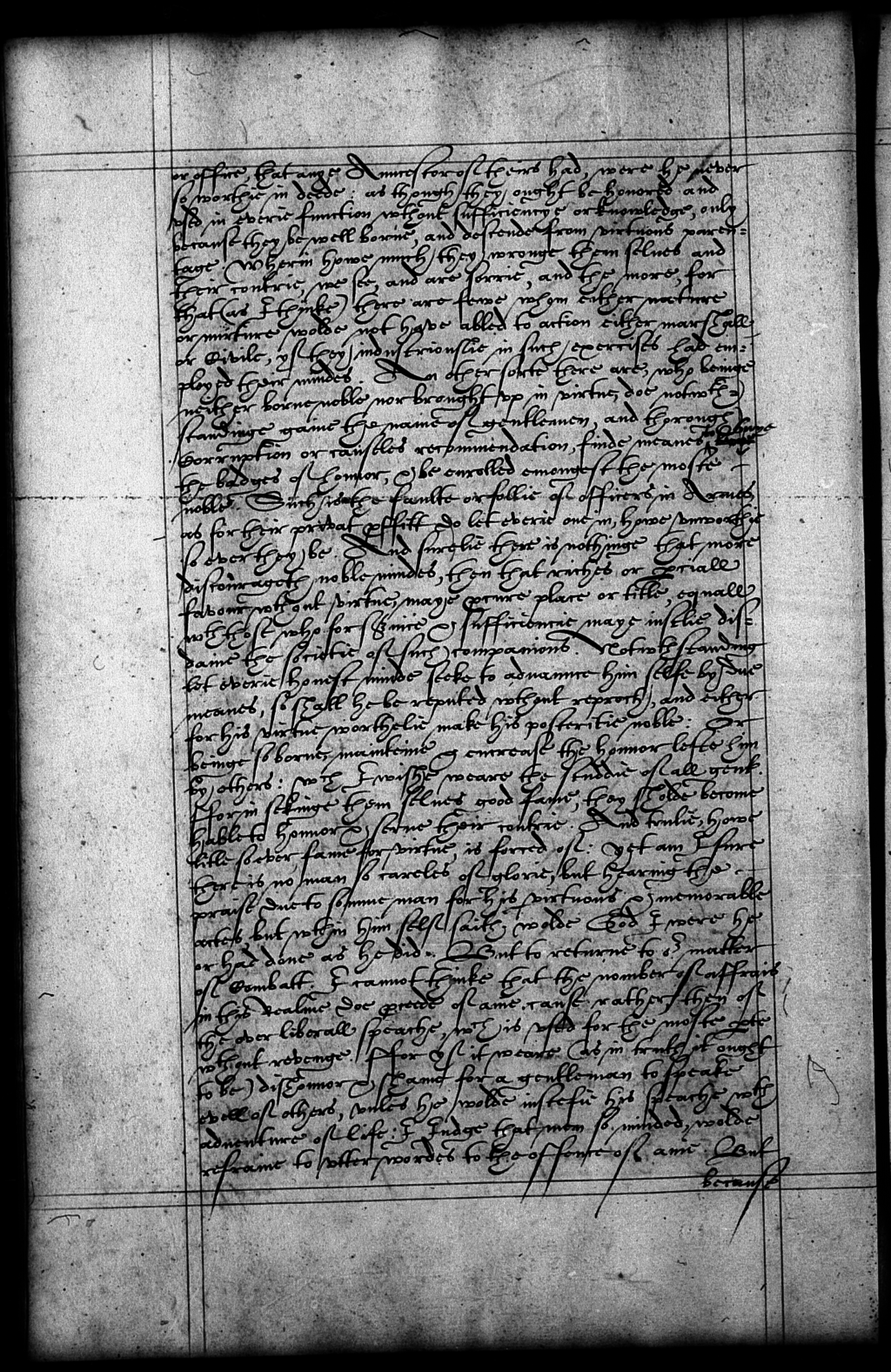or office, that anye Anncestor of theirs had, were he never so worthie in deede: as though they ought be honored and vsed in everie function wthout sufficiencye or knowledge, only because they be well borne, and descende from virtuous parentage. Wherin howe much they wronge them selues and their contrie, we see, and are sorrie, and the more, for that (as I thinke) there are fewe whom either nature or nurture wolde not have abled to action either marshall or Civile, yf they industriouslie in sure exercises had employed their mindes. An other sorte are, who beinge neither borne noble nor brought vp in virtue, doe notwthstandinge gaine the name of gentleman, and through Corruption or causles recommendation, finde meanes to buye the badges of honnor, & be enrolled emongest the moste noble. Such is the faulte or follie of officers in Armes as for their privat p[ro]ffitt do let everie one in, howe vnworthie so ever they be. And surelie there is nothinge that more discourageth noble mindes, then that riches or [s]p[e]ciall favour wthout virtue, maye p[ro]cure place or title, equall wth those who for seruice & sufficiencie maye iustlie disdaine the societie of such companions. Notwthstanding let everie honest minde seeke to advannce him selfe by due meanes, so shall he be reputed wthout reproch, and either for his virtue worthelie make his posteritie noble: Or beinge so borne, meinteine & encrease the honnor lefte him by others: wch I wishe weare the studdie of all gent. ffor in sekinge them selues good fame, they sholde become hable to honnor & serue their contrie. And trulie, howe litle so ever [fanne?] for virtue, is [forced?] of: Yet am I sure there is no man so careles of glorie, but hearing the praise due to somme man for his virtuous & memorable actes, but wthin him self saith: wolde God I were he or had done as he did. But to returne to or matter of Combatt. I cannot thinke that the nomber of affrais in this Realme doe prcede of anie cause rather then of the over liberall speache, wch is vsed for the moste pte wthout revenge. ffor yf it weare (as in truth it ought to be) dishonnor & shame for a gentleman to speake evell of others, vnless he wolde iustefie his speache wth adventure of life: I Iudge that men so minded, wolde refraine to vtter wordes to the offence of anie. But
|
|
You are not currently logged in. Are you accessing the unsecure (http) portal? Click here to switch to the secure portal. |
Page:MS V.b.104 005v.png
Revision as of 14:24, 17 December 2019 by David Kite (talk | contribs)
This page needs to be proofread.

